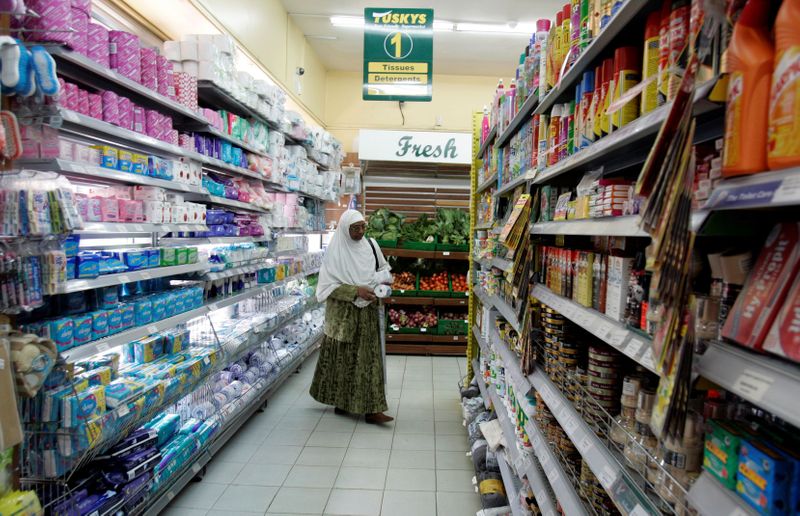By George Obulutsa
NAIROBI (Reuters) - Sub-Saharan Africa's economy is expected to grow by 3.3% this year and 3.5% in 2022, buoyed by rising commodity prices, the lifting of some anti-coronavirus restrictions and a pick-up in global trade, a World Bank report said on Wednesday.
It said sub-Saharan growth would rise to 3.8% in 2023.
Like elsewhere around the world, sub-Saharan Africa imposed restrictions on movement in the first quarter of last year to limit the spread of COVID-19, throttling trade and other key economic activities including tourism and transport.
The World Bank report said growth could turn out to be higher at 5.1% in 2022 and 5.4% a year later depending on how fast COVID-19 vaccinations were rolled out, while a slower inoculation rate would reduce growth projections.
"Slower vaccine delivery and coverage would impede the relaxation of COVID-19 disruptions in economic activity and project growth to slow down to 2.4% in 2023," the bank's Africa's Pulse report said.
The last Africa's Pulse report issued in April had forecast growth of 2.3%-3.4% this year, after an estimated contraction of 2.0% in 2020.
While many developed economies have gradually reopened thanks to vaccination campaigns, the pace of inoculations in Africa has remained slow. There is concern that continued threats posed by variants of the coronavirus such as Delta may leave African nations trapped in cycles of on-off lockdowns.
As of Wednesday, Africa had registered 8.45 million COVID-19 infections and 212,000 deaths, according to a Reuters tally.
According to WHO Africa, as of end-September, half the 52 African countries that had received COVID-19 vaccines had fully vaccinated just 2% or less of their populations.
The World Bank said the economies of Angola, Nigeria and South Africa were expected to come out of recession this year.
Oil-producing Angola was seen growing by 0.4% in 2021, after five consecutive years of recession, the report said.
Nigeria's growth was expected to be 2.4%, driven by services, while South Africa - the most industrialized economy in Africa - was projected to grow by 4.6% on the back of better performance in services, industry and agriculture.
The bank said non-resource-rich countries were also expected to rebound strongly, with Ivory Coast's economy expected to expand 6.2% and Kenya's 5.0% this year.
It said sub-Saharan Africa had witnessed a jump in public debt during the pandemic, with the region's average general government gross debt projected at 71% of gross domestic product for 2021, up 30 percentage points since 2013.

"Increased funding on commercial terms, partially reflecting the recent surge in Eurobond issuances, has raised the exposure of sub-Saharan African countries to interest rate, exchange rate and rollover risks," World Bank said.
The bank said other challenges to the region's economic outlook included rising inflation and climate change. Despite sub-Saharan Africa being the smallest contributor to world carbon emissions, it was hardest-hit by climate change.